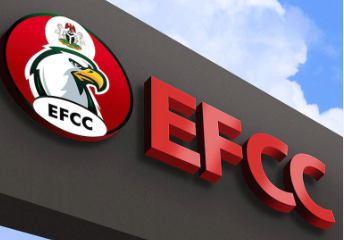In a move aimed at bolstering the Nigerian banking sector amid volatile foreign exchange (FX) rates, the Central Bank of Nigeria (CBN) has issued a new circular stopping banks from recklessly spending gains made from forex revaluation.
The apex bank distributed a letter to all banks, detailing directives that must be immediately implemented. In a proactive measure to safeguard against future adverse FX rate movements, banks are now mandated to set aside their foreign currency revaluation gains.
The CBN opines that these gains will serve as counter-cyclical buffers and cannot be utilized for dividend payouts or operating expenses.
The CBN has taken into account that the recent FX policy changes could lead to regulatory breaches such as exceeding Single Obligor Limits (SOL) and Net Open Position (NOP) limits.
In a statement dated September 11, 2023, Mustafa said the CBN had learnt that the policy to reform the forex market might result in gains or losses for banks.
CBN instructed banks that have profited from the policy to resist using the proceeds gained for dividend payments or to fund their operations. The statement was titled; ‘Impact of Recent FX Policy Reforms: Prudential Guidance to the Banking Sector’.
Recall that in June that the CBN had devalued the naira and also implemented the unification of the multiple exchange rates in the official market, leaving just the Investors’ and Exporters’ (I&E) rate as a benchmark for the trading of the dollars in the official window.
READ ALSO: NCC, CBN have resolved N120bn USSD code debt crisis – Danbatta
“The Central Bank of Nigeria has reviewed the impact of the recent foreign exchange (FX) rate regime change on the banking system and observed its potential to significantly increase Naira value of banks’ foreign currency (FCY) assets and liabilities, resulting in varying levels of FX revaluation gains or losses across the industry.
“Additional implications of the FX policy reforms may include breaches of single obligor and net open position limits, possible increase in asset quality risks and pressure on industry capital adequacy,” CBN said in the statement.
On the guidelines, the CBN said: “1. Treatment of FX Revaluation Gains: Banks are required to exercise utmost prudence and set aside the FCY revaluation gains as a counter-cyclical buffer to cushion any future adverse movements in the FX rate. In this regard, banks shall not utilize such FX revaluation gains to pay dividend or meet operating expenses.
READ ALSO: Nigeria’s FX reserve lower than CBN’s reported figures—JP Morgan
Banks should not use the extra money they make from FCY revaluation to pay dividends or expenses. Instead, they should save it for future losses if the exchange rate goes down. This is called a counter-cyclical buffer.
Banks that have lent more than the allowed limit to one borrower because of the FCY policy can ask the Bank for permission to keep the loan. This is called forbearance. The Bank will not penalize them for breaking the limit, but only for loans that existed before the policy.
Banks that have more FCY assets or liabilities than the allowed limit because of the FCY revaluation can also ask the Bank for forbearance. The Bank will not penalize them for breaking the limit either.
Banks should still follow the existing rules on how much capital they need, how much dividends they can pay, and how much FCY they can borrow.

 Entertainment5 days ago
Entertainment5 days ago
 Health1 week ago
Health1 week ago
 Health4 days ago
Health4 days ago
 Football1 week ago
Football1 week ago
 Football1 week ago
Football1 week ago
 Crime4 days ago
Crime4 days ago
 Crime1 week ago
Crime1 week ago
 Education6 days ago
Education6 days ago













